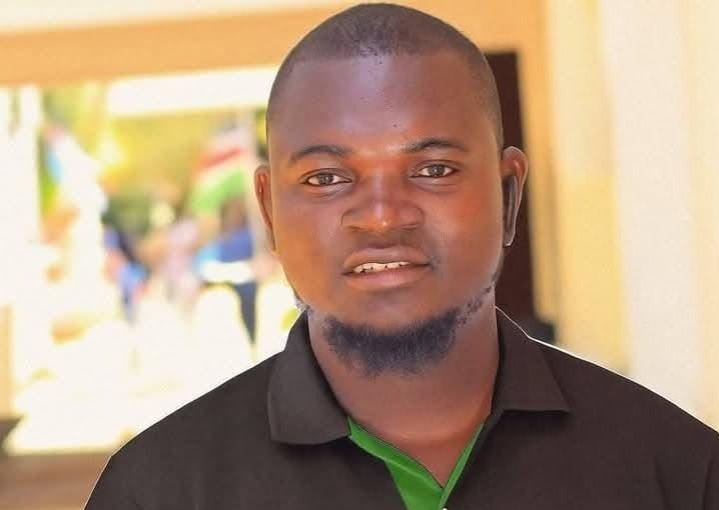
June 2025 marks the first anniversary of the nationwide Gen Z protests in Kenya, which were sparked by the unpopular Finance Bill, 2024.
Parliament endorsed obnoxiously high taxes that threatened to exacerbate the suffering of a population, most of whom are poor, burdened by the high cost of living and poor state of the economy.
The ensuing police brutality against the flag, phone and water carrying peaceful protesting youngsters was mind-boggling.
While Kenyans and the regional and global community were united in condemning state excesses blamed for 63 police killings, 610 injuries, 1,376 arbitrary arrests and 74 enforced disappearances documented by the KNCHR during the June-November 2024 protest period, the rank and file in the police service were emboldened by impunity and are flabbergasted by anyone questioning their brutal modus operandi.
The oppressive and dehumanising policing culture remains one of the colonial outfits that independent Kenya inherited from the British and has been unable to shed off despite massive harm to the people and public discord.
Arbitrary arrests, torture, trumped-up charges, excessive force, enforced disappearances and extrajudicial killings have been exercised against hapless Kenyans with impunity despite prohibitions by national laws and international norms that Kenya has ratified.
The events leading to the brutal murder of Albert Ojwang' and those after are not just annoying, they prick the human conscience.
Most bizarre is the fact that the unending chorus of condemnation of the murder and demand for accountability for the planners, executors and those who aided the crime and cover-up appears not to jolt the law enforcement agencies to action to seek justice and accountability.
This appears to affirm the prevailing public fear that violence against citizens, especially the poorest, is a policing culture and that they cannot be trusted to maintain order, enforce laws, ensure public safety and protect human rights, which is their mandate.
The Missing Voices, a coalition of civil society groups concerned with police excesses, has documented every year the practice of extrajudicial killing by the police, including 104 police killings and 55 enforced disappearances in 2024 and 118 police killings and 10 enforced disappearances in 2023.
The killing of 31-year-old Pwani University-trained teacher and blogger Albert Ojwang', who was arrested over a post on X that was allegedly critical of Deputy Inspector General of Police Eliud Lagat, is illustrative of abuse of police power, impunity and attempt to defeat justice.
The Inspector General of Police disclosed that officers from the Directorate of Criminal Investigations were dispatched from the headquarters in Nairobi to travel to Ojwang's home in Homa Bay county.
They drove more than 350 km West of Nairobi to arrest Ojwang over an alleged false publication offence.
He was driven back to Nairobi's Central police station, where police alleged that he died of self-inflicted injuries on the night of his detention.
A postmortem report ruled out the police suicide theory and attributed the death to assault and or torture while in lawful custody.
Criminal Procedure Code Section 71 and Police Standing Orders Chapter 15 state that all offences must be tried in the nearest court unless transferred by a court decision.
The alleged online post that elicited a complaint from DIG Lagat cannot be allocated a specific jurisdiction unless there was a premeditated form of injustice that is domiciled at Central police station.
Ojwang's killing smacks of malice and bad faith by the police officers – those who complained and ordered the arrest, those who arrested and transported him to Nairobi and those to whom he was handed over at Central police station.
Police stations are places of protected custody. Police officers are required to keep suspects safe, free from torture, cruel and inhumane treatment.
Ojwang's death brings to the fore the ugly reality that senior police officers are at the centre of widespread and systematic arbitrary arrests, enforced disappearances, torture and deaths at the hands of police officers.
Thorough investigations must be conducted to pinpoint and hold to account all those directly involved in this case.
A national inquiry must be conducted into transgressions that are practised at Central police stations and other places. Accountability and justice must be prioritised.
In 1969, the global community signed the International Covenant on Civil and Political Rights, recognising the inherent dignity and the equal and inalienable rights of all members of the human family as the foundation of freedom, justice and peace in the world.
This was informed by the appreciation that the individual, having duties to other individuals and to the community to which he belongs, is under a responsibility to strive for the promotion and observance of the rights recognised in the present.
Kenya must also recall that the prohibition against egregious conduct crosses national borders. The prohibition of torture, cruel and inhumane treatment like the one that Ojwang suffered is a rule of customary international law regarded as jus cogens.
Kenya leaders, including police leadership with command responsibility, must stop taking this matter lightly. They must heed the call of the public, civil society and Ojwang's family to decisively act to ensure #JusticeForAlbertOjwang
Executive director of Defenders Coalition and chairperson of East & Horn of Africa Human Rights Defenders Network












